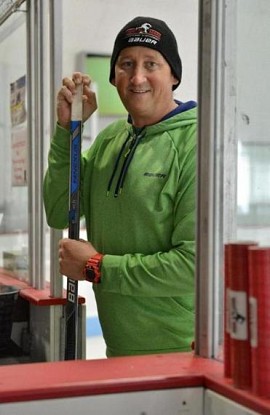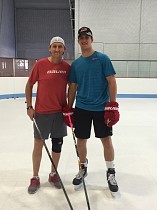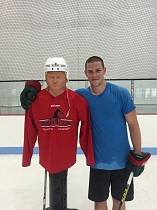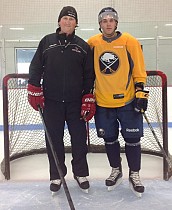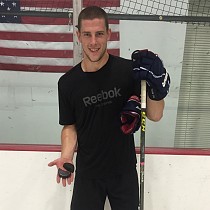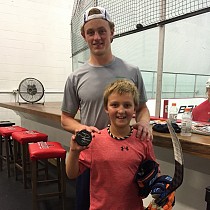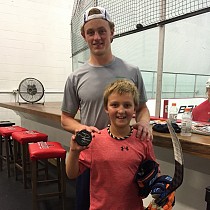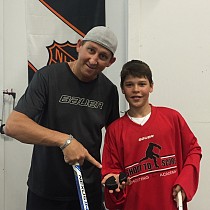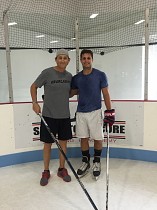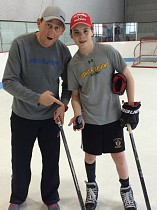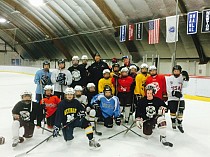
|
Find a Camp Upcoming Schedule CampsMonday, July 7, 202512pm-3pm: 1B, AA: Ages 11-13 (Jul 7 - Jul 11) at Boch Ice Center Tuesday, July 8, 202512pm-3pm: 1B, AA: Ages 11-13 (Jul 8 - Jul 11) at Boch Ice Center Wednesday, July 9, 202512pm-3pm: 1B, AA: Ages 11-13 (Jul 9 - Jul 11) at Boch Ice Center Thursday, July 10, 202512pm-3pm: 1B, AA: Ages 11-13 (Jul 10 - Jul 11) at Boch Ice Center Friday, July 11, 202512pm-3pm: 1B, AA: Ages 11-13 (Jul 11 - Jul 11) at Boch Ice Center Monday, July 14, 20258am-11am: 2A (A): Ages 11-13 (Jul 14 - Jul 18) at Boch Ice Center 12pm-3pm: 2B (AA & AAA): Ages 14 + (Jul 14 - Jul 18) at Boch Ice Center Tuesday, July 15, 20258am-11am: 2A (A): Ages 11-13 (Jul 15 - Jul 18) at Boch Ice Center 12pm-3pm: 2B (AA & AAA): Ages 14 + (Jul 15 - Jul 18) at Boch Ice Center Wednesday, July 16, 20258am-11am: 2A (A): Ages 11-13 (Jul 16 - Jul 18) at Boch Ice Center 12pm-3pm: 2B (AA & AAA): Ages 14 + (Jul 16 - Jul 18) at Boch Ice Center Thursday, July 17, 20258am-11am: 2A (A): Ages 11-13 (Jul 17 - Jul 18) at Boch Ice Center 12pm-3pm: 2B (AA & AAA): Ages 14 + (Jul 17 - Jul 18) at Boch Ice Center Friday, July 18, 20258am-11am: 2A (A): Ages 11-13 (Jul 18 - Jul 18) at Boch Ice Center 12pm-3pm: 2B (AA & AAA): Ages 14 + (Jul 18 - Jul 18) at Boch Ice Center Monday, July 21, 20258am-11am: 3A (AA): Ages 8-10 (Jul 21 - Jul 25) at Boch Ice Center 12pm-3pm: 3B (AAA): Ages 14 + (Jul 21 - Jul 25) at Boch Ice Center Tuesday, July 22, 20258am-11am: 3A (AA): Ages 8-10 (Jul 22 - Jul 25) at Boch Ice Center 12pm-3pm: 3B (AAA): Ages 14 + (Jul 22 - Jul 25) at Boch Ice Center Wednesday, July 23, 20258am-11am: 3A (AA): Ages 8-10 (Jul 23 - Jul 25) at Boch Ice Center 12pm-3pm: 3B (AAA): Ages 14 + (Jul 23 - Jul 25) at Boch Ice Center Thursday, July 24, 20258am-11am: 3A (AA): Ages 8-10 (Jul 24 - Jul 25) at Boch Ice Center 12pm-3pm: 3B (AAA): Ages 14 + (Jul 24 - Jul 25) at Boch Ice Center Friday, July 25, 20258am-11am: 3A (AA): Ages 8-10 (Jul 25 - Jul 25) at Boch Ice Center 12pm-3pm: 3B (AAA): Ages 14 + (Jul 25 - Jul 25) at Boch Ice Center Monday, July 28, 20258am-11am: 4A (AAA): Ages 11-13 (Jul 28 - Aug 1) at Boch Ice Center 12pm-3pm: 4B (AAA): Ages 8-10 (Jul 28 - Aug 1) at Boch Ice Center Tuesday, July 29, 20258am-11am: 4A (AAA): Ages 11-13 (Jul 29 - Aug 1) at Boch Ice Center 12pm-3pm: 4B (AAA): Ages 8-10 (Jul 29 - Aug 1) at Boch Ice Center Wednesday, July 30, 20258am-11am: 4A (AAA): Ages 11-13 (Jul 30 - Aug 1) at Boch Ice Center 12pm-3pm: 4B (AAA): Ages 8-10 (Jul 30 - Aug 1) at Boch Ice Center Thursday, July 31, 20258am-11am: 4A (AAA): Ages 11-13 (Jul 31 - Aug 1) at Boch Ice Center 12pm-3pm: 4B (AAA): Ages 8-10 (Jul 31 - Aug 1) at Boch Ice Center Friday, August 1, 20258am-11am: 4A (AAA): Ages 11-13 (Aug 1 - Aug 1) at Boch Ice Center 12pm-3pm: 4B (AAA): Ages 8-10 (Aug 1 - Aug 1) at Boch Ice Center Monday, August 4, 20258am-11am: 5A (AA): Ages 11-13 (Aug 4 - Aug 8) at Boch Ice Center 12pm-3pm: 5B (AA): Ages 14 + (Aug 4 - Aug 8) at Boch Ice Center Tuesday, August 5, 20258am-11am: 5A (AA): Ages 11-13 (Aug 5 - Aug 8) at Boch Ice Center 12pm-3pm: 5B (AA): Ages 14 + (Aug 5 - Aug 8) at Boch Ice Center Wednesday, August 6, 20258am-11am: 5A (AA): Ages 11-13 (Aug 6 - Aug 8) at Boch Ice Center 12pm-3pm: 5B (AA): Ages 14 + (Aug 6 - Aug 8) at Boch Ice Center Thursday, August 7, 20258am-11am: 5A (AA): Ages 11-13 (Aug 7 - Aug 8) at Boch Ice Center 12pm-3pm: 5B (AA): Ages 14 + (Aug 7 - Aug 8) at Boch Ice Center Friday, August 8, 20258am-11am: 5A (AA): Ages 11-13 (Aug 8 - Aug 8) at Boch Ice Center 12pm-3pm: 5B (AA): Ages 14 + (Aug 8 - Aug 8) at Boch Ice Center Monday, August 11, 20258am-11am: 6A (A): Ages 8-10 (Aug 11 - Aug 15) at Boch Ice Center 12pm-3pm: 6B (AA & AAA): Ages 11-13 (Aug 11 - Aug 15) at Boch Ice Center Tuesday, August 12, 20258am-11am: 6A (A): Ages 8-10 (Aug 12 - Aug 15) at Boch Ice Center 12pm-3pm: 6B (AA & AAA): Ages 11-13 (Aug 12 - Aug 15) at Boch Ice Center Wednesday, August 13, 20258am-11am: 6A (A): Ages 8-10 (Aug 13 - Aug 15) at Boch Ice Center 12pm-3pm: 6B (AA & AAA): Ages 11-13 (Aug 13 - Aug 15) at Boch Ice Center Thursday, August 14, 20258am-11am: 6A (A): Ages 8-10 (Aug 14 - Aug 15) at Boch Ice Center 12pm-3pm: 6B (AA & AAA): Ages 11-13 (Aug 14 - Aug 15) at Boch Ice Center Friday, August 15, 20258am-11am: 6A (A): Ages 8-10 (Aug 15 - Aug 15) at Boch Ice Center 12pm-3pm: 6B (AA & AAA): Ages 11-13 (Aug 15 - Aug 15) at Boch Ice Center Monday, August 18, 20258am-11am: 7A (AAA): Ages 14 + (Aug 18 - Aug 22) at Boch Ice Center 12pm-3pm: 7B (AAA): Ages 8-10 (Aug 18 - Aug 22) at Boch Ice Center Tuesday, August 19, 20258am-11am: 7A (AAA): Ages 14 + (Aug 19 - Aug 22) at Boch Ice Center 12pm-3pm: 7B (AAA): Ages 8-10 (Aug 19 - Aug 22) at Boch Ice Center Wednesday, August 20, 20258am-11am: 7A (AAA): Ages 14 + (Aug 20 - Aug 22) at Boch Ice Center 12pm-3pm: 7B (AAA): Ages 8-10 (Aug 20 - Aug 22) at Boch Ice Center Thursday, August 21, 20258am-11am: 7A (AAA): Ages 14 + (Aug 21 - Aug 22) at Boch Ice Center 12pm-3pm: 7B (AAA): Ages 8-10 (Aug 21 - Aug 22) at Boch Ice Center Friday, August 22, 20258am-11am: 7A (AAA): Ages 14 + (Aug 22 - Aug 22) at Boch Ice Center 12pm-3pm: 7B (AAA): Ages 8-10 (Aug 22 - Aug 22) at Boch Ice Center Monday, August 25, 20258am-11am: 8A (AAA): Ages 11-13 (Aug 25 - Aug 29) at Boch Ice Center 12pm-3pm: 8B (AA & AAA): Ages 14 + (Aug 25 - Aug 29) at Boch Ice Center Tuesday, August 26, 20258am-11am: 8A (AAA): Ages 11-13 (Aug 26 - Aug 29) at Boch Ice Center 12pm-3pm: 8B (AA & AAA): Ages 14 + (Aug 26 - Aug 29) at Boch Ice Center Wednesday, August 27, 20258am-11am: 8A (AAA): Ages 11-13 (Aug 27 - Aug 29) at Boch Ice Center 12pm-3pm: 8B (AA & AAA): Ages 14 + (Aug 27 - Aug 29) at Boch Ice Center Thursday, August 28, 20258am-11am: 8A (AAA): Ages 11-13 (Aug 28 - Aug 29) at Boch Ice Center 12pm-3pm: 8B (AA & AAA): Ages 14 + (Aug 28 - Aug 29) at Boch Ice Center Friday, August 29, 20258am-11am: 8A (AAA): Ages 11-13 (Aug 29 - Aug 29) at Boch Ice Center 12pm-3pm: 8B (AA & AAA): Ages 14 + (Aug 29 - Aug 29) at Boch Ice Center Recent News Shoot to Score Photos Testimonials  This past summer was my first as a professional hockey player, and Glen was a huge part of making it a successful one. Combining Glen's expertise with a workout, diet,... Read More » This past summer was my first as a professional hockey player, and Glen was a huge part of making it a successful one. Combining Glen's expertise with a workout, diet,... Read More »Mailing List Facebook Fans |


